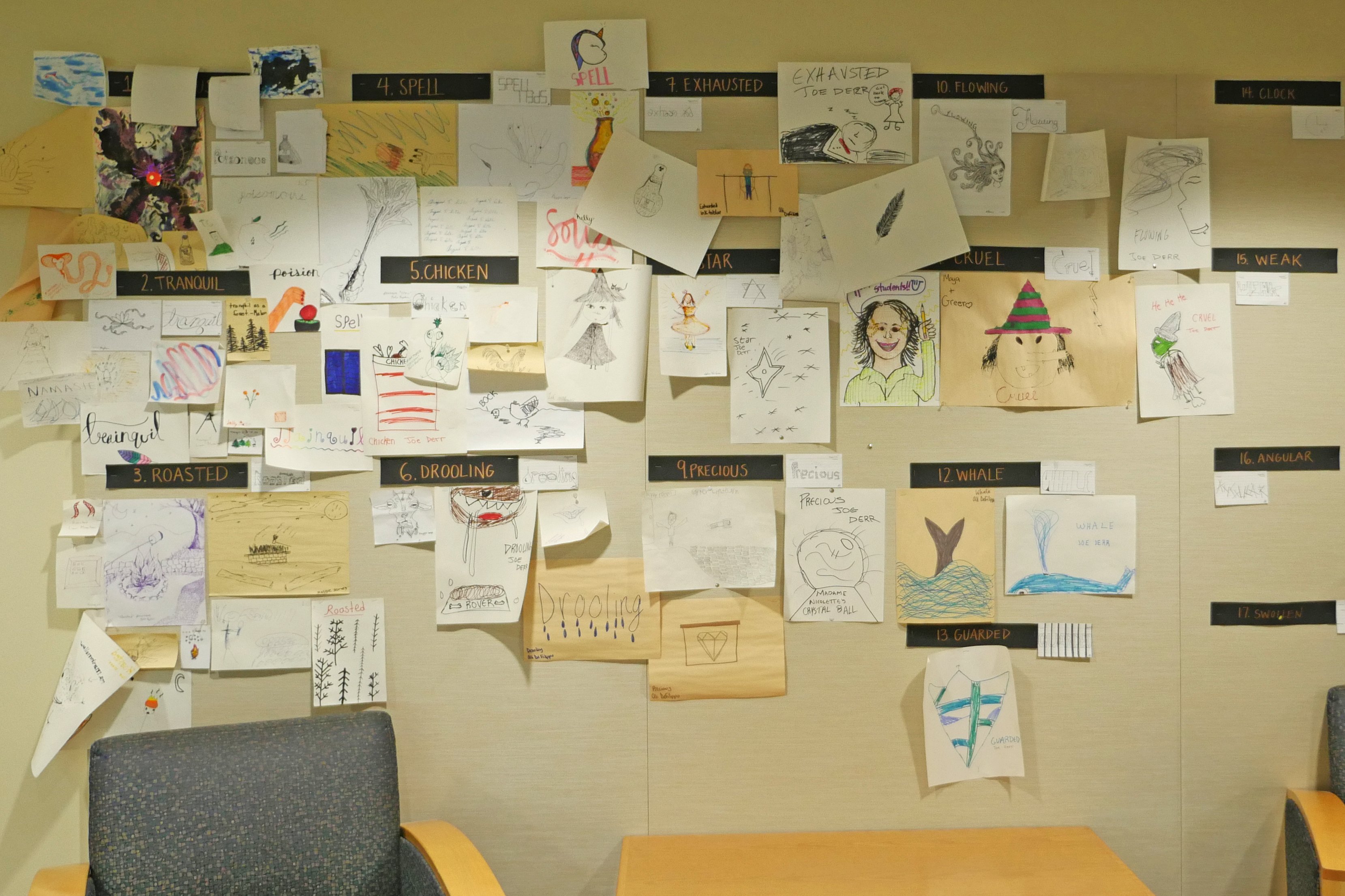In his groundbreaking book Emotional Intelligence, Daniel Goleman describes a key set of abilities and characteristics central to the concept of emotional intelligence (EI). These include being able to motivate oneself and persist in the face of frustration; the ability to control impulses and delay gratification; to regulate one’s moods and keep distress from swamping the capacity to think; to bounce back in the face of disappointment; to empathize and to hope. Goleman argues that these and other crucial emotional competencies can be learned and improved upon by children given the right opportunities and educational environment and that EQ can be as or more powerful than IQ.
As St. Luke’s Director of Emotional Intelligence, I have been working with faculty, parents, and students. St. Luke’s has been intentional and deliberate about building programs, curriculum, pedagogy, activities, schedules, spaces, and speaker series that enhance opportunities to learn and practice the core competencies of emotional intelligence. We believe Emotional Intelligence Matters.
Our philosophy embraces the teaching of EI skills systemically, reframing practices and seeking opportunities to embed lessons within our existing structures, while also adding supplemental programming where occasions arise. Recent examples of EI building at St. Luke’s include…
Yale Center for Emotional Intelligence: St. Luke’s 9th and 10th grade Class Deans and I have been partnering with teachers from Yale’s Center for Emotional Intelligence to design lessons about decision making, empathy, self-awareness, and increasing emotional vocabulary. These lessons will take place during advisory and mini-course sessions beginning in January.

That's me talking to history students about the lasting impact of human emotion.
Student Journaling: Students across divisions and disciplines have been reflecting often about ”golden moments” in their writing, as evidenced-based research reveals the power of gratitude in reducing stress while building a sense of abundance and resilience. Two great articles illuminate the power of journaling and gratitude.
Golden moments are simple observations that connect students with their emotions and experiences. In a recent Middle School history class we took out some time for journaling and one student observed: “This morning in the car ride to school I listened to music and I felt really relaxed and at peace with myself and the world.”
Reading to Increase Empathy: We know that reading literature, even if only for short periods of time, increases empathy and perspective. For this reason, many class discussions and assignments have been designed to foster a greater understanding of the nuances of human emotion. Recently, eighth grade English classes examined the difference between “embarrassed vs humiliated”, “excited vs elated” and “frustrated vs hopeless” in their study of The Absolutely True Diary of a Part-Time Indian.
Emotional Expression Through Art: Middle School Art students have been exploring emotions through art. They created a wall with drawings, paintings, and graphic representation of various feelings, increasing their abilities to recognize and display appropriate interpersonal responses.

A wall of emotions drawn by Middle School students.
Mindfulness Practices: St. Luke’s Head of School Mark Davis, a devoted mindfulness and yoga practitioner, has written extensively about the benefits of mindfulness. He recently spoke with students about the importance of Unplugging. Upper School students at St. Luke’s have created time and space where interested peers can engage in guided mindfulness practices during the school day. They also share resources by posting information online about the benefits of mindfulness and times to meet to practice together.
Students created an online Resource Board to share inspiration & meeting times.
These are just a few examples of how a school can be intentional about developing Emotional Intelligence in students. Below are several sources parents and teachers may find useful in their journey to understand the importance and impact of this vital human capability.
Brené Brown on Empathy - Video
Kelly McGonigal: How To Make Stress Your Friend -Ted Talk
Why We Need to Teach Kids Emotional Intelligence - Psychology Today
Daniel Goleman Explains Emotional Intelligence - Video
9 Things Emotionally Intelligent People Do Differently - Forbes
Other topics that may interest you include Teens & Sleep: Every Minute Matters and The Power of Compassionate Student Leaders and Student Leadership: The Power of Journaling.
Get our latest blog posts!

By Author
- Amber Berry: Former Head of Middle School ( 2 )
- Beth Yavenditti: Director of Global Education ( 3 )
- Carrie Meatto: Spanish Teacher ( 1 )
- Daphne Teittinen-Schreck: ESS Director ( 1 )
- Dr. Jason Haynes: History Chair ( 2 )
- Dr. Stephanie Bramlett: Former Director of Inclusive Excellence ( 2 )
- Gareth Fancher: Director of Emotional Intelligence ( 1 )
- Georgia Rosenberg '19: Student ( 1 )
- Hunter Martin: Summer Program Director ( 1 )
- Jacqueline Nelson: Director of Equity and Inclusion ( 4 )
- Jane Olsen: Fifth Grade Teacher (retired) ( 1 )
- Jason Giffen: Director of Enrollment Management ( 4 )
- Jessie Samuel, Fifth Grade Science Teacher ( 1 )
- Jim Foley: Asst. Head of School for Leadership & Innovation ( 2 )
- Jim Yavenditti: Director of Studies ( 1 )
- Joshua Schneider, Upper School Science Teacher ( 1 )
- Julia Gabriele: Associate Head of School & Chief Financial Officer ( 5 )
- Kate Parker-Burgard: Director of Community Connections ( 22 )
- Liz Perry: Assistant Head of School for Academics ( 11 )
- Mark Chuhta: Asst. Head of Middle School ( 1 )
- Mary Halpin Carter: Head of School ( 3 )
- Nancy Troeger: Director of Marketing and Communications ( 3 )
- Sonia Bell: Director of College Counseling ( 2 )
- Stephen Vehslage: Associate Director of College Counseling ( 1 )
- Students: Jack Briggs '21 and Liam Patty '21 ( 1 )
- Tom Owen: English Teaching Fellow ( 1 )
- Gareth Fancher ( 1 ) [Show All]
Recent Articles
Posts by Topic
- Leadership (44)
- Character (33)
- Mission (32)
- Community (28)
- School (25)
- Innovation in Education (18)
- Lifelong Learning (18)
- Service (18)
- teens (18)
- private school (14)
- Inspiration (13)
- Values (13)
- Moral Compass (11)
- Parenting (10)
- Diversity & Inclusion (9)
- Global Perspective (9)
- Above and Beyond (7)
- Gratitude (7)
- Moral Courage (7)
- Well-Being (7)
- Freedom (4)
- Mindfulness (4)
- SLSHeroes (4)
- college (4)
- Civil Discourse (3)
- College Admissions (3)
- Resilience (3)
- Student Voices (3)
- Technology (3)
- humanity (3)
- Meditation (2)
- Parents as Partners (2)
- Postive (Alumni) Outcomes (2)
- Private School Admissions (2)
- student-led learning (2)
- Athletics (1)
- Family (1)
- Patriotism (1)
- middle school (1)






.png)










Leave a comment